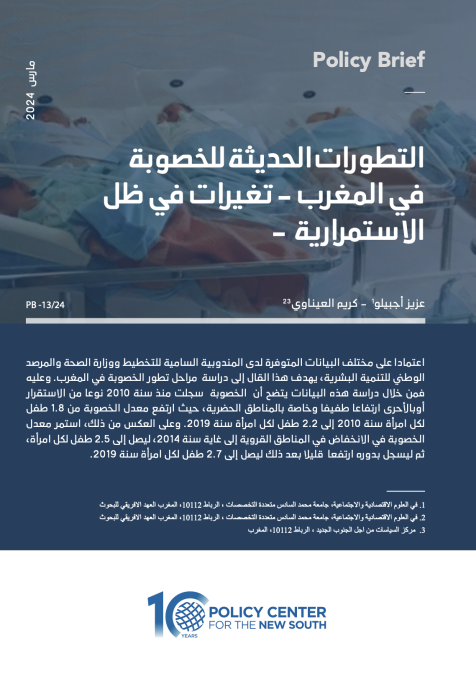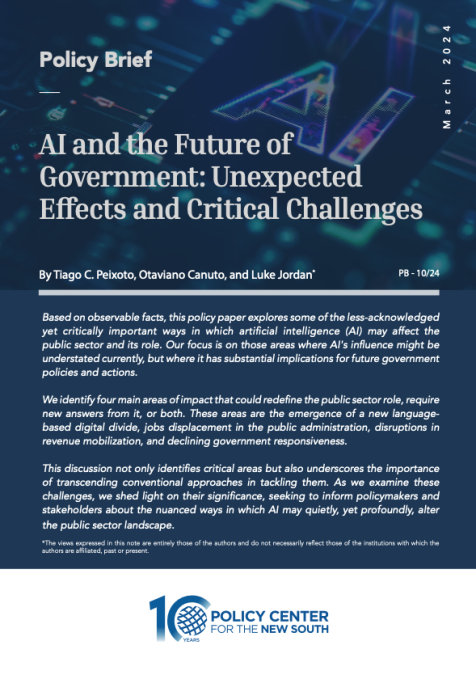Perspectives démographiques & croissance économique au Maroc - Youssef Courbage
January 24, 2020
Le Policy Center for the New South organise une présentation sous le thème « Perspectives démographiques et croissance économique au Maroc » par M Youssef Courbage.
Speakers

Khalid Chegraoui
Senior Fellow
Khalid Chegraoui is Senior Fellow at the Policy Center for the New South and Vice Dean of Political Sciences and International Relations at the Faculty of Governance, Economic and Social Sciences of the Mohammed VI University.
He began his teaching and research career in 1992 as a Research Assistant Professor at Sidi Mohammed Ben Abdallah University in Fez after earning his first doctorate in African Studies from the Mohammed V University in Rabat focusing on West Sub-Saharan Africa. He also earned a Doctorate of State in African Studies from the same University in 2002, where he focused on Contemporary West Africa, in 2003 he became Professor of History and Political Anthropology at the Institute of African Studies, Mohammed V University, consultant on African and Middle Ea ...

Youssef Courbage
Directeur de Recherche en Démographie, INED (France)
Youssef Courbage est un démographe syrien et chercheur à l’institut national d’études démographiques (INED). Longtemps expert des Nations unies, il a effectué de nombreuses missions au Moyen-Orient et en Afrique du Nord.
Il a été expert à l’Unesco puis aux Nations unies à Beyrouth (1973-1975), au Caire (1975-1977), à Yaoundé (1977-1979), à Port-au-Prince (1979-1984) et à Rabat (1984-1989), puis chercheur à l’Institut national d’études démographiques (Ined), à Paris. Entre 2003 et 2005, il a été détaché à l’Institut français du Proche-Orient (Ifpo) à Beyrouth, dont il a dirigé le département des études contemporaines. En 2005, il est devenu directeur de recherche en démographie à l’Ined.
Il est l’auteur de plusieurs ouvrages dont : Chrétiens et Juifs dans l’Islam arabe et tur ...










